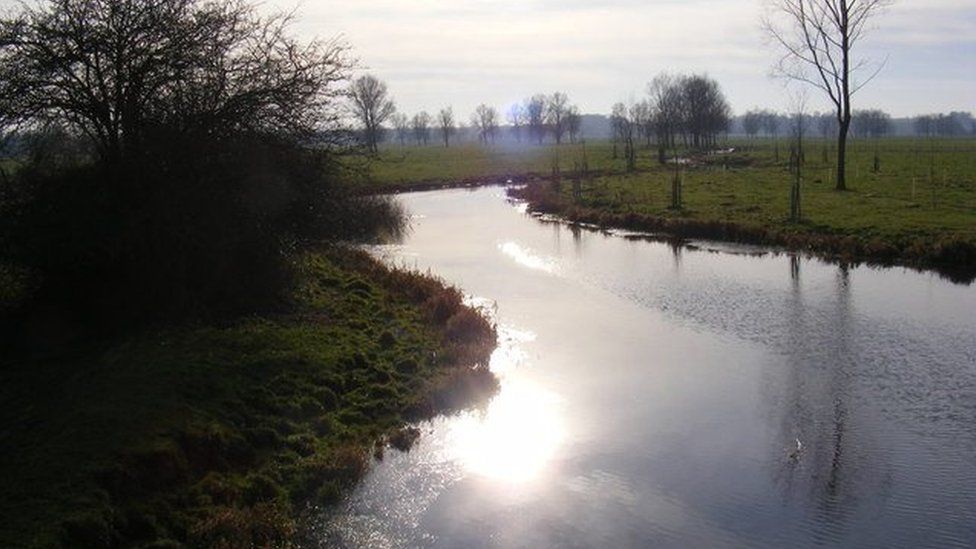Neonicotinoids at 'chronic levels' in UK rivers, study finds
- Published

Rivers across the country are "chronically polluted" with pesticides believed to pose a threat to bee populations, a report has found.
The River Waveney on the Norfolk/Suffolk border was found to have the highest levels of neonicotinoids in the UK.
The River Wensum in Norwich, and the River Tame in the West Midlands were also named among the most polluted.
According to figures from UK monitoring data by the European Environment Agency, 88% of sites in Britain were contaminated with neonicotinoids.
The Angling Trust, the charity Buglife, and The Rivers Trust said eight rivers in England - including the Ouse, Somerhill Stream, Wyke Beck, Ancholme, and Sincil Dyke - exceeded recommended chronic pollution limits.
The River Waveney's pollution limit was exceeded for a whole month, they said.
The study said the three toxins of concern were imidacloprid, clothianidin and thiamethoxam, which are used in farming and waste water treatment plants.
Matt Shardlow, chief executive of Buglife, said: "We are devastated to discover that many British rivers have been heavily damaged by neonicotinoid insecticides.
"It is vital that action is taken to ban these three toxins."
Prof Dave Goulson, from the School of Life Sciences at the University of Sussex, said just a teaspoon of imidacloprid was enough to give a lethal dose to 1.25bn honeybees.
"To find that they are washing through our rivers is very serious indeed," he said.
Environment Secretary Michael Gove last month said tougher restrictions on neonicotinoid pesticides were justified by the growing weight of scientific evidence they are harmful to bees and other pollinators.
The Secretary of State said, unless the scientific evidence changes, the government will maintain these increased restrictions post-Brexit.
It followed advice from the UK government's advisory body on pesticides.